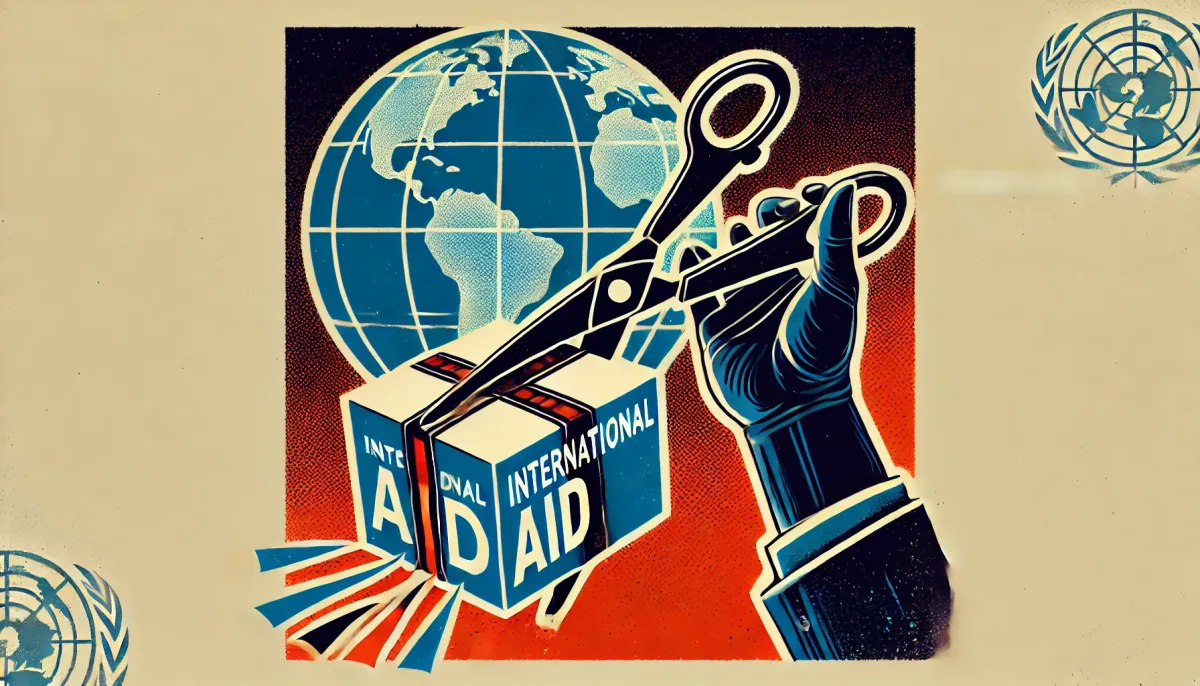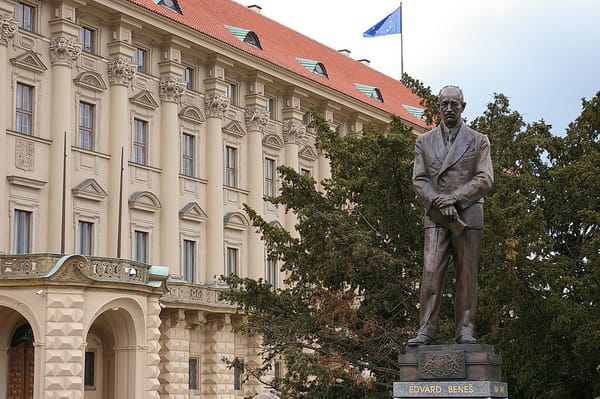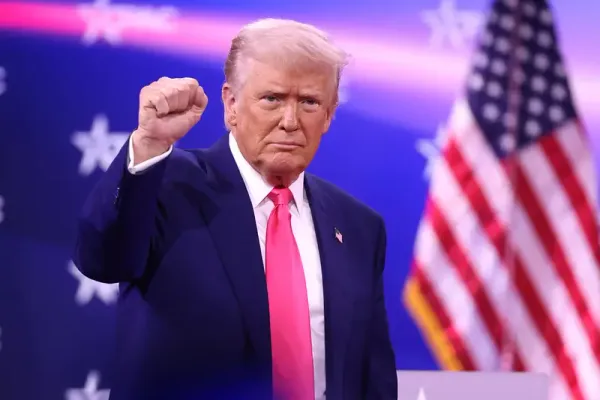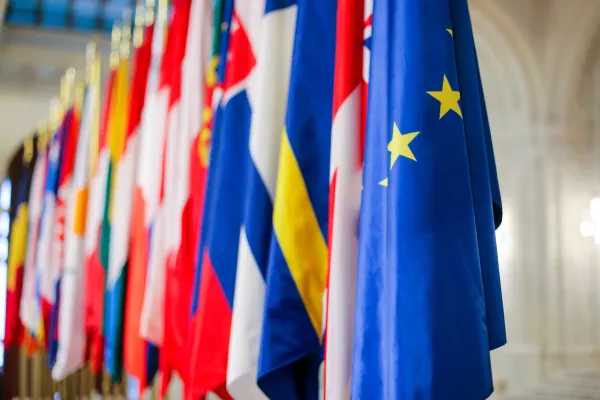
CEE media outlets, civil groups count cost of Trump’s aid freeze
The suspension of foreign aid by incoming US President Donald Trump on 24 January is causing major disruption in sectors including independent media and NGOs across Central and Eastern Europe (CEE), with many institutions now frantically seeking alternative funding sources.
The US has traditionally played a key role in funding CEE’s democracy initiatives, infrastructure and civil society programmes. Trump’s sudden freeze, ostensibly for a 90-day review, throws CEE into a new reality, and the continuation of funding into doubt.
The Trump administration is reviewing US foreign assistance funded by the State Department or the US Agency for International Development (USAID), US Secretary of State Marco Rubio said in a statement, “to ensure they are efficient and consistent with US foreign policy under Donald Trump’s ‘America First’ agenda”. Rubio added that each policy “must be justified with the answer to three simple questions: Does it make America safer? Does it make America stronger? Does it make America more prosperous?”
Hungarian, Serbian media outlets rue funding suspension
Media is one of the most vulnerable sectors, particularly in Hungary, Poland, and Balkan countries, where press freedom has been under pressure in recent years. US foreign aid, largely distributed through agencies such as USAID, which employs around 15,000 employees in the US and abroad, and the National Endowment for Democracy (NED), has been a lifeline for investigative journalism, anti-corruption initiatives, and human rights groups. However, by 27 January, over 50 of USAID’s directors had reportedly been sent home on paid leave for 90 days and locked out of their email accounts.
In Hungary, Trump’s funding freeze impacts 22 grantee organisations with a focus on public-interest journalism, as well as 4 that coordinate media literacy and journalistic training. Independent outlets, including 444, Klubradio and Magyar Hang, stand to lose a combined HUF 173mn (EUR 440,000) in funding from the Free Media Grant, a programme backed by the US Embassy. Agnes Urban of Mertek Mediaelemzo Muhely (Mertek Media Analysis Workshop) said: “At this point, we can only wait. There will be no contract signings or payments under these circumstances. We currently have no further information.”
Civil sector impacted in Balkans
NGOs in Hungary have also been hit, with Transparency International set to lose over HUF 7mn, and the Roma Press Center HUF 5mn. Further south, civil society groups in Bosnia and Herzegovina and Moldova, which rely on US assistance for judicial reform and reconciliation efforts, are also facing potential funding gaps, delaying progress on democratic initiatives.
In Serbia, where independent media outlets rely on grants from US organisations, editors warn that the freeze could accelerate the decline of press freedom. “We are already struggling to operate under government pressure, and now our last source of independent funding is being cut off,” one investigative journalist said.
According to news agency AP, the aid freeze has significantly impacted Moldova, where US funds have been crucial for balancing the media landscape and supporting democratic institutions.
However, while US aid has been an important funding source, European institutions such as the European Endowment for Democracy (EED) and private donors such as the Open Society Foundations have already been increasing their support for media in the region. It remains to be seen whether this will fully compensate the loss of US funding.
Disruptions to governance, development projects
The Balkans, a significant recipient of US aid, faces major setbacks in infrastructure, economic development, and governance reform projects. Hundreds of initiatives, from rural development schemes in North Macedonia to rule-of-law programmes in Kosovo, have now been paused or cancelled.
In Bosnia and Herzegovina, where post-war reconstruction and reconciliation programmes have relied on US funding for decades, local NGOs warn that the withdrawal of support could stall crucial inter-ethnic dialogue efforts.
Similarly, Moldova’s push for judicial reform – once heavily backed by US agencies – now faces an uncertain future, potentially delaying the country’s EU integration aspirations. Some European Commission officials have signalled the possibility of an emergency funding package, but bureaucratic obstacles could delay implementation.
“It’s no exaggeration to say that we have democracy in Moldova, in part thanks to American financial support,” think-tank WatchDog programme manager Valeriu Pasa said in a statement, adding that that the US is the beneficiary of Moldova “being more democratic and developed, ensuring we don’t turn into a Russian or Chinese colony.”
Nature abhors a vacuum – Russia, China could exploit geopolitical fallout
Beyond economic and media concerns, Trump’s aid freeze carries significant geopolitical risks. The US has served as a counterweight to Russian and Chinese influence in CEE. With the US pulling out, analysts say Russia and China could now fill the void, offering alternative financial assistance with fewer democratic conditions attached.
Serbia and Hungary have already deepened ties with China through the Belt and Road Initiative, while Russian state-backed enterprises have expanded their footprint in the energy and defence sectors in the Balkans. Without US engagement, these dependencies may deepen, reshaping strategic alliances. However, analysts caution that China’s investments are often accompanied by long-term debt obligations, while Russia’s influence often comes with political strings attached.
With the US withdrawing financial support, some EU officials have hinted at an emergency funding mechanism to sustain critical media and governance programmes. However, the slow-moving nature of EU bureaucracy and budgetary constraints could hamper swift implementation.
Whether from the EU, private donors, or regional governments, CEE will need to plug the funding gap. Pressure from CEE governments could shift the bloc’s policy priorities in 2025, but whether the EU can fully compensate for the lost US aid remains to be seen.





